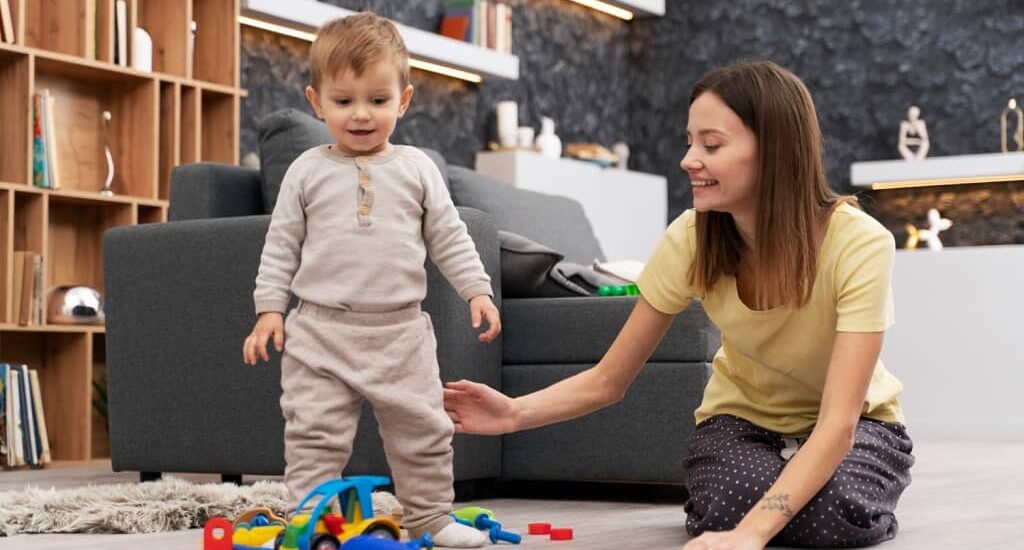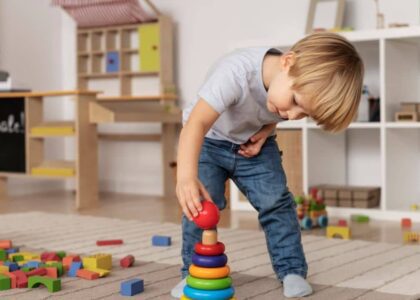As parents, we all want our children to grow into confident and independent individuals. Teaching independence is a crucial aspect of parenting, and it begins in the toddler years. Encouraging independence at this stage helps toddlers develop self-reliance, problem-solving skills, and a sense of accomplishment. In this comprehensive guide, we will explore practical strategies and tips to help parents foster independence in their toddlers.
Foster a Safe and Supportive Environment:
Creating a safe and supportive environment is essential for a toddler to develop independence. Ensure that your home is childproofed, allowing your little one to explore freely without constant intervention. Provide age-appropriate toys, books, and activities that encourage exploration, curiosity, and creativity. This environment will nurture your child’s natural inclination to discover and learn independently.
Develop an Independent Toddler & Promote Self-Help Skills:
Encourage your toddler to participate in daily activities and develop self-help skills. Simple tasks like dressing themselves, feeding, and cleaning up after playtime empower them and build confidence. Provide child-sized utensils, cups, and clothes to make it easier for them to handle and manipulate objects independently. Offer praise and positive reinforcement when they successfully accomplish these tasks, fostering their sense of achievement.
Also Read:- Helping Children How To Overcome Fears: A Guide for Parents
Offer Choices and Decision-Making Opportunities:
Allowing toddlers to make choices and decisions within safe boundaries helps them develop their decision-making skills. Offer options like selecting clothes to wear, choosing a snack, or deciding on a book to read. By giving them opportunities to express their preferences, you nurture their autonomy and decision-making abilities, leading to increased independence.
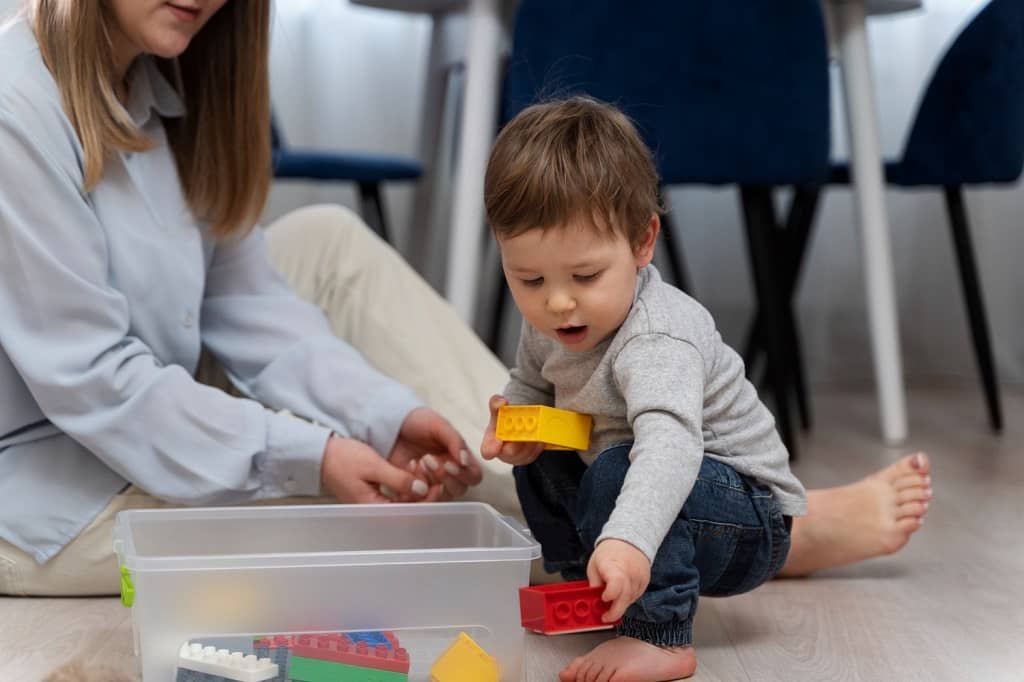
Encourage Problem-Solving and Critical Thinking:
Engaging toddlers in problem-solving activities stimulates their cognitive development and nurtures independence. Encourage them to solve simple puzzles, complete age-appropriate crafts, or engage in imaginative play. When faced with challenges or obstacles, provide guidance and support, but allow them space to find their own solutions. This approach fosters resilience, creativity, and critical thinking skills.
Also Read:- What are the Benefits of a Holistic Health Checkup for Children?
Promote Self-Directed Play:
Self-directed play is crucial for a toddler’s development, fostering creativity, imagination, and independence. Offer a variety of open-ended toys, such as building blocks, art supplies, or dress-up clothes, to encourage independent play. Allow your child to explore and create without constant direction or interruption. This type of play helps them develop problem-solving skills, learn to entertain themselves, and build independence.
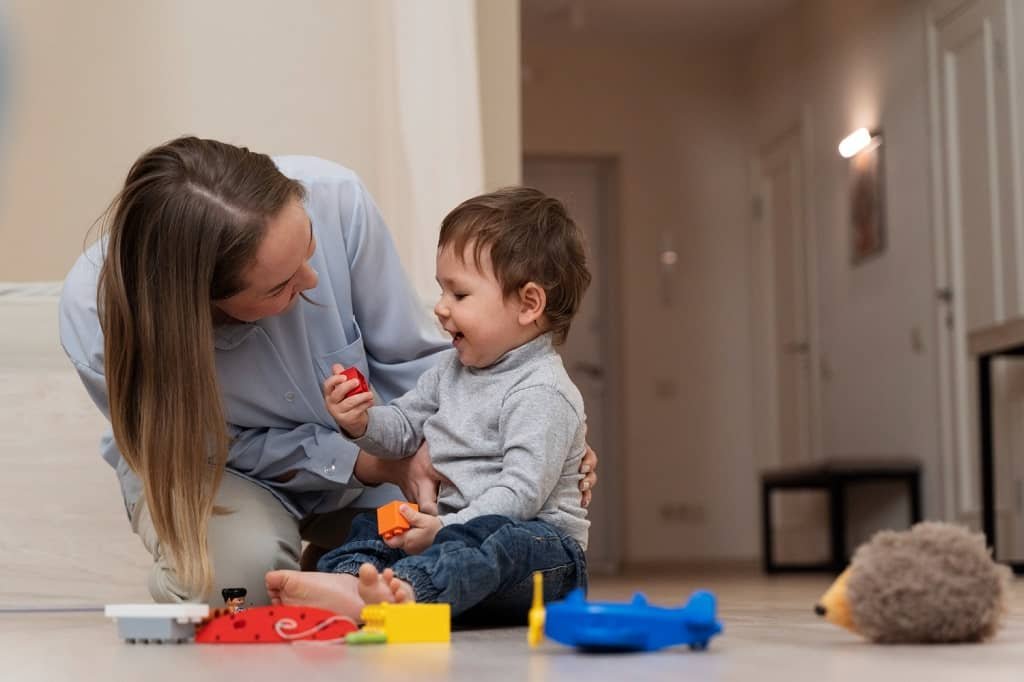
Encourage Independence in Daily Routines:
Incorporate opportunities for independence into daily routines. Encourage your toddler to brush their teeth, wash their hands, or put away toys independently. Gradually introduce tasks that match their abilities, and provide gentle guidance when needed. Reinforce their efforts and celebrate their accomplishments, fostering a sense of independence and responsibility.
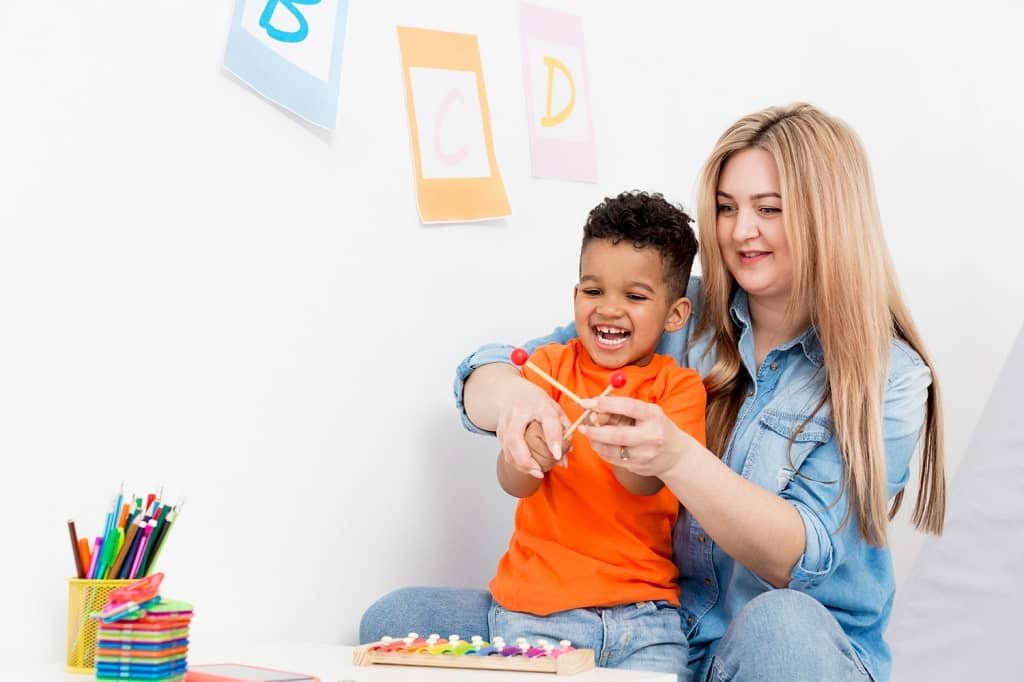
Develop an Independent Toddler & Teach Basic Life Skills:
Introduce age-appropriate life skills that contribute to independence. Teach your toddler how to dress themselves, use a spoon, drink from a cup, or put on their shoes. Break down tasks into simple steps and offer assistance as necessary. As they master these skills, gradually step back and allow them to take the lead, building their confidence and self-sufficiency.

Encourage Communication and Expression:
Effective communication is key to developing independence. Encourage your toddler to express their needs, thoughts, and feelings using age-appropriate language. Actively listen to them, validate their emotions, and respond respectfully. When children feel heard and understood, they develop confidence and are more likely to take initiative and make choices independently.
Model and Demonstrate Independence:
Children learn by observing their parents and caregivers. Model independence by completing your own tasks and chores without excessive reliance on your child’s help. Narrate your actions to help them understand the process and encourage them to imitate your behaviors. By consistently demonstrating independence, you provide a positive example for your toddler to follow.

Practice Patience and Provide Support:
Developing independence is a gradual process, and each child progresses at their own pace. Practice patience and avoid rushing or taking over tasks your toddler can handle. Offer support when needed, but allow them room to learn from their mistakes. Celebrate their progress and efforts, no matter how small, to motivate them along their journey towards independence.
Conclusion
Fostering independence in toddlers is a rewarding and vital aspect of parenting. By creating a safe environment, promoting self-help skills, offering choices, encouraging problem-solving, and providing support, parents can empower their children to become confident, capable, and independent individuals. Remember, developing independence is a gradual process, so be patient, supportive, and celebrate the milestones along the way. With your guidance and nurturing, your toddler will gain the skills and confidence they need to thrive independently.
FAQs
Why is it important to foster independence in toddlers?
Fostering independence in toddlers is crucial for their overall development. It helps them gain confidence, problem-solving skills, and a sense of autonomy, which are essential for their future growth and success.
How can I encourage my toddler to become more independent?
You can encourage your toddler to become more independent by providing opportunities for them to make choices, allowing them to complete simple tasks on their own, praising their efforts, and offering support when needed.
What are some age-appropriate tasks that toddlers can do independently?
Age-appropriate tasks for independent toddlers include dressing themselves (with simple clothing choices), putting away toys, feeding themselves, washing their hands, brushing their teeth (with supervision), and tidying up their belongings.
How can I balance fostering independence while ensuring my toddler’s safety?
Balancing independence and safety is important. Set up a safe and childproof environment, provide clear boundaries and rules, supervise when necessary, and gradually introduce more independence as your toddler demonstrates readiness and understanding.
Should I step in immediately if my toddler is struggling with a task?
It’s important to give your toddler a chance to try and figure things out on their own first. If they are struggling, offer gentle guidance, break the task into smaller steps, and provide support as needed. Giving them the opportunity to problem-solve builds their independence.
How can I build my toddler’s decision-making skills?
To build your toddler’s decision-making skills, offer them choices within appropriate limits. For example, ask them which shirt they would like to wear or which book they want to read. This allows them to make decisions and feel a sense of control.
Is it normal for my toddler to resist independence?
Yes, it is normal for toddlers to resist independence at times. They may feel more comfortable relying on their parents for certain tasks. Be patient, provide encouragement, and gradually introduce independence in a supportive and nurturing manner.
How can I help my toddler develop problem-solving skills?
Encourage problem-solving skills by allowing your toddler to face age-appropriate challenges. Instead of immediately solving the problem for them, ask open-ended questions, offer suggestions, and let them come up with their own solutions.
How long does it take for a toddler to become truly independent?
The timeline for a toddler to become truly independent varies for each child. It is a gradual process that occurs over time with consistent support and opportunities for independence. Remember, each milestone achieved is a step toward greater independence.


